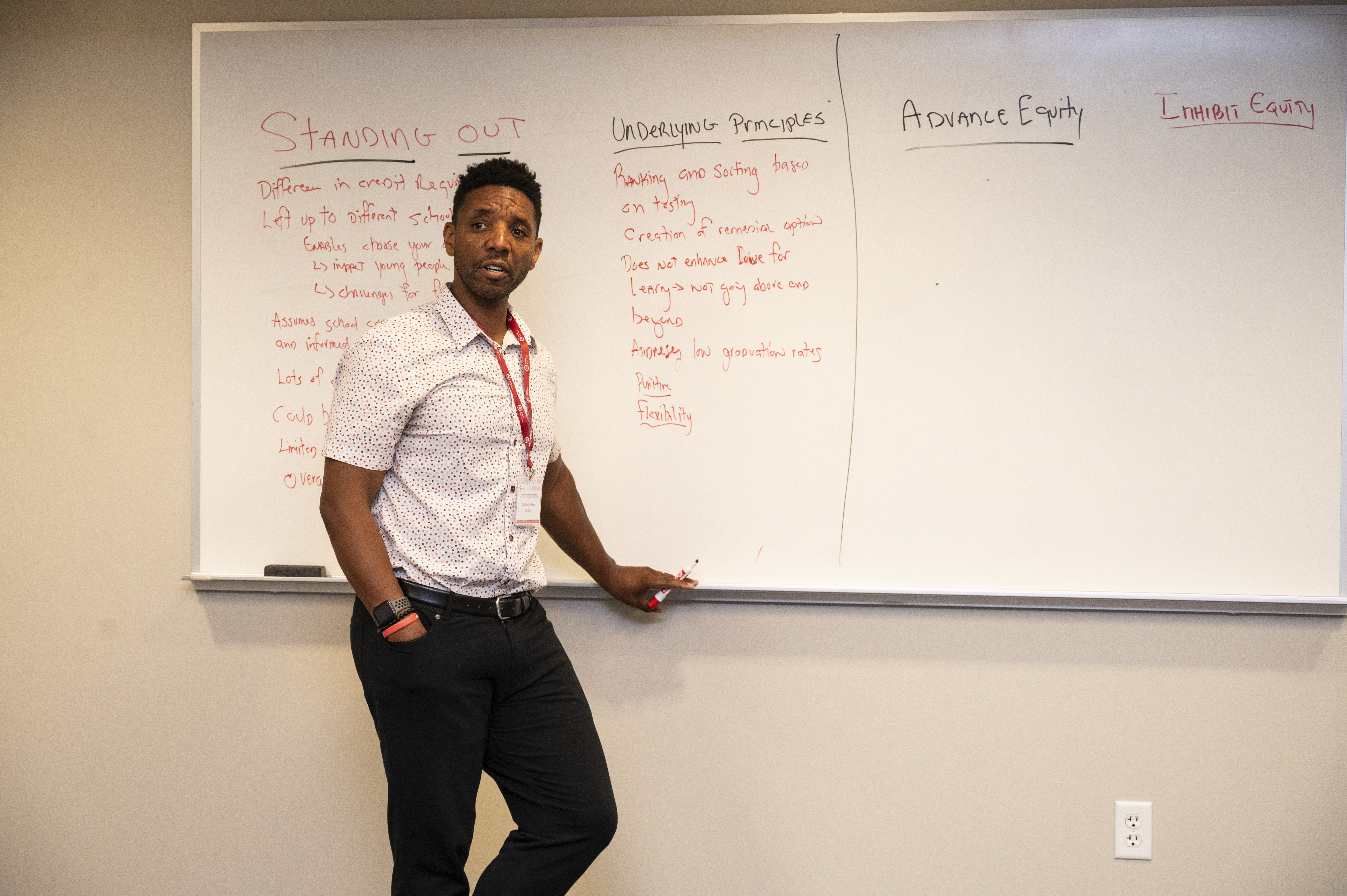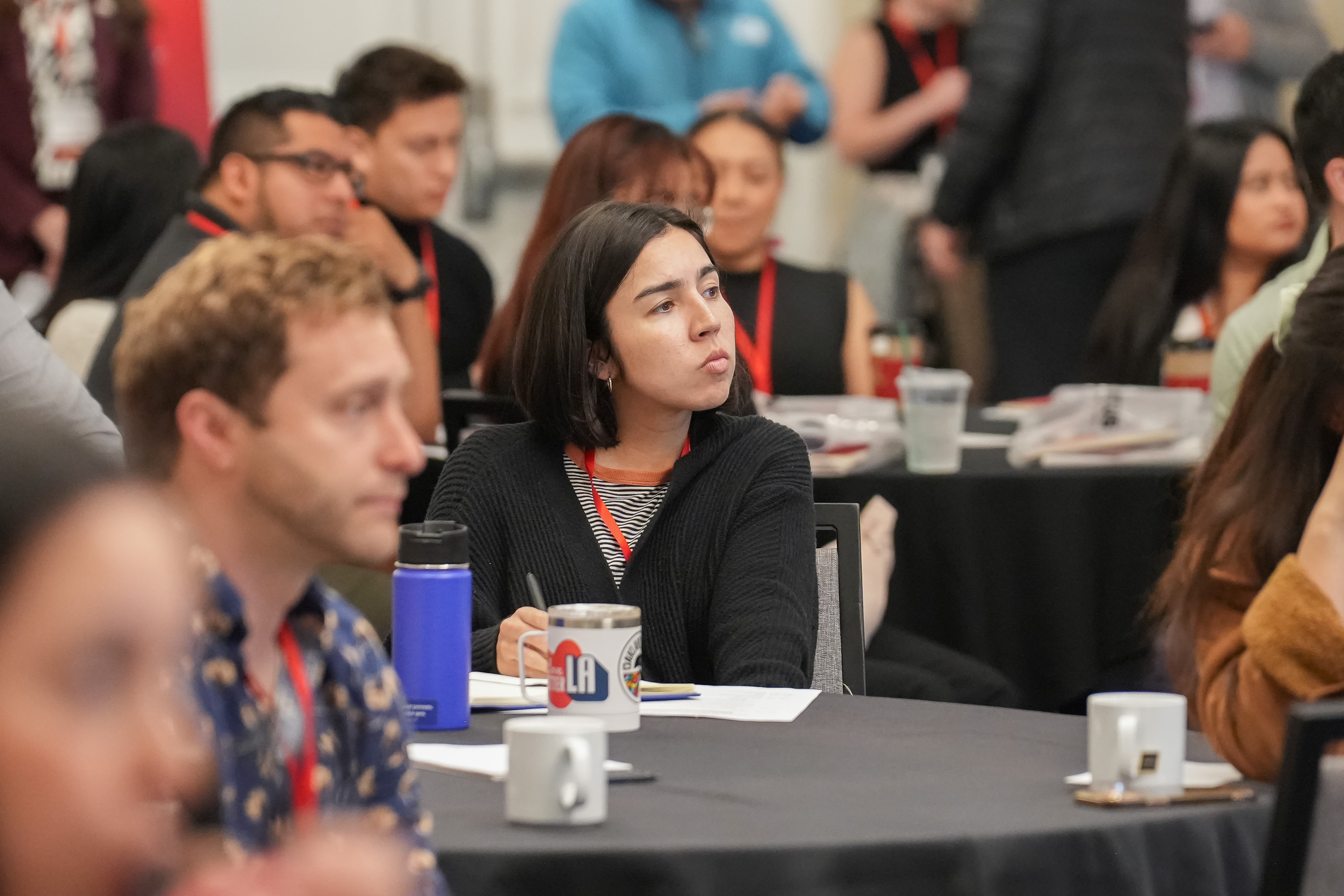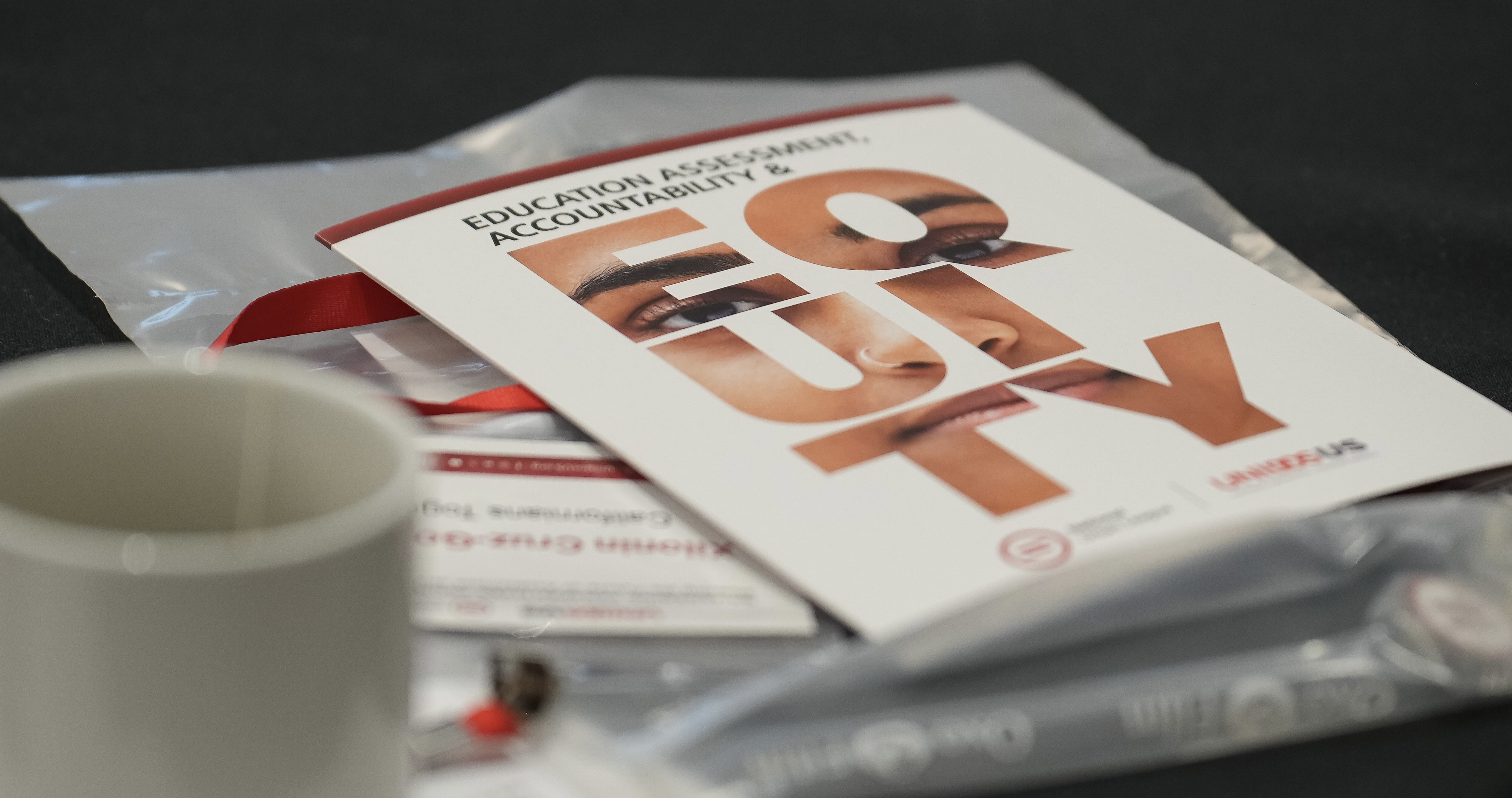Future of Assessment and Accountability Project

The National Urban League and UnidosUS have embarked on a project to reimagine K12 assessment and accountability. Often left out of national conversations that impact their lives, The Future of Assessment & Accountability (FOAA) project aims to uplift and center the voices of young people, their families and communities, educators, and youth development workers—particularly those from historically excluded groups.
To do this, the National Urban League and UnidosUS, in partnership with other organizations, hosted a series of listening sessions with a wide range of stakeholders, including experts in assessment and accountability, to shed light on the experiences, knowledge, and visions they have for a system of assessment and accountability that will improve educational experiences and outcomes for our youth.
Launching the Civil Rights Principles for Assessment & Accountability
The Broadening Perspectives Project culminates with the release of the Civil Rights Principles for Assessment & Accountability—a set of five actionable recommendations designed to make education systems more equitable, transparent, and student-centered.
Developed by UnidosUS and the National Urban League with input from over 500 stakeholders, these principles call for:
-
Shared responsibility for continuous improvement
-
Data-informed decisions to drive equity
-
Guaranteed opportunity to learn
-
A well-rounded education for all students
-
Meaningful assessments that guide real change
The principles will be officially released at the June 10 convening, alongside a digital report and print-ready brochure. These guidelines offer a bold framework to advance fair, inclusive, and effective education policy.
Download the Principles Today!
Sign on to the Civil Rights Principles for Assessment and Accountability
Phase Two
Phase two aims to develop a set of equity statements and policy principles that can serve as guidance and tools to transform assessments and accountability systems at the state level. We are doing this by engaging with these committees and statewide meetings to co-construct, design, and refine then maybe two sub-headers that ensure optimal participation; we hosted convenings on Saturdays and provided transportation and food to all attendees.
Our Convenings

Our convenings compel participants to reimagine K-12 assessment and accountability. These events are a cornerstone of our efforts to engage diverse stakeholders, including young people, families, and experts in the field, to envision the future of assessment and accountability systems collectively. Our goals are to:
- Elevate statewide learnings (including bright spots and pitfalls)
- Engage and mobilize advocates to build power
We are holding our next and final convening, Broadening Perspectives from New York: Shaping the Future of Assessment and Accountability Convening, on Saturday, January 11, 2025. Read about our previous convenings:
- Kicking Off Phase Two of the Future of Assessment and Accountability in California
- Reimaging the Future of Assessments and Accountability in Ohio
- Broadening Perspectives Project: Third and Final Statewide Convening in New York
Our Committees
To support this effort, we’ve established three key committees to guide the development and refinement of these equity principles:
- Civil Rights Steering Committee: This committee completed its foundational work in December, co-constructing the equity principles by synthesizing insights and identifying critical policy challenges.
- Caregiver Advisory Committee: This group is integral to phase two, providing feedback and ensuring the principles reflect the perspectives and needs of caregivers.
- Youth Advisory Committee: This committee also supports phase two and offers essential feedback, centering the voices and experiences of students to refine the principles.
Phase One

In phase one of our work, we hosted 63 listening sessions with 258 stakeholders to hear the voices of those most impacted by assessments and systems—students, families, educators, and community leaders. These sessions revealed systemic gaps in current standardized testing practices.
Our findings revealed that tests in their current state often fail to capture student abilities and overlook cultural relevance and socio-emotional development, leading to gaps in real-world readiness. Phase two builds on these findings by deepening engagement with students, parents, and educators through inclusive convenings, prioritizing accessibility and collaboration.
Our goal is to develop systems that not only hold schools accountable but also stop punitive actions that disproportionately penalize under-resourced schools and communities, perpetuating inequities rather than addressing them.
Resources
- Findings from Phase One of Broadening Perspectives
- Read the recap of our California Convening
- Read the recap of our Ohio Convening
- Watch our video series on YouTube
- Watch the recap of the California convening
- Watch the recap of our Ohio Convening
Connect With Us
Enjoying our work? Sign up for our newsletter today to receive the latest updates on the state of assessment and accountability systems.


